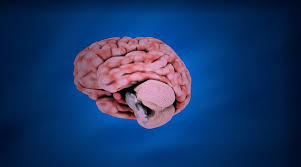
Breaking News
 Boots on the Ground...The news is getting worse so keep prepping.
Boots on the Ground...The news is getting worse so keep prepping.
 O'Keefe Media Group: Secret Service Agent Assigned to Vance Leaks Sensitive Information
O'Keefe Media Group: Secret Service Agent Assigned to Vance Leaks Sensitive Information
 Montana Program Makes Youth Offenders Talk with Their Victims and Recidivism Plummets
Montana Program Makes Youth Offenders Talk with Their Victims and Recidivism Plummets
 Gorgeous Bridge Allows for Walking and Biking Between US and Canada Set to Open in 2026
Gorgeous Bridge Allows for Walking and Biking Between US and Canada Set to Open in 2026
Top Tech News
 Superheat Unveils the H1: A Revolutionary Bitcoin-Mining Water Heater at CES 2026
Superheat Unveils the H1: A Revolutionary Bitcoin-Mining Water Heater at CES 2026
 New battery idea gets lots of power out of unusual sulfur chemistry
New battery idea gets lots of power out of unusual sulfur chemistry
 Anti-Aging Drug Regrows Knee Cartilage in Major Breakthrough That Could End Knee Replacements
Anti-Aging Drug Regrows Knee Cartilage in Major Breakthrough That Could End Knee Replacements
 Scientists say recent advances in Quantum Entanglement...
Scientists say recent advances in Quantum Entanglement...
 Superheat Unveils the H1: A Revolutionary Bitcoin-Mining Water Heater at
Superheat Unveils the H1: A Revolutionary Bitcoin-Mining Water Heater at
 US Farmers Began Using Chemical Fertilizer After WW2. Comfrey Is a Natural Super Fertilizer
US Farmers Began Using Chemical Fertilizer After WW2. Comfrey Is a Natural Super Fertilizer
 Kawasaki's four-legged robot-horse vehicle is going into production
Kawasaki's four-legged robot-horse vehicle is going into production
 The First Production All-Solid-State Battery Is Here, And It Promises 5-Minute Charging
The First Production All-Solid-State Battery Is Here, And It Promises 5-Minute Charging
NIH Greatly Expands Investment in BRAIN Initiative

The National Institutes of Health announces funding of more than 200 new awards, totaling over $220 million, through the Brain Research through Advancing Innovative Neurotechnologies (BRAIN) Initiative, an exciting trans-agency effort to arm researchers with revolutionary tools to fundamentally understand the neural circuits that underlie the healthy and diseased brain. Supported by the Congress through both the regular appropriations process and the 21st Century Cures Act, this brings the total 2018 support for the program to more than $400 million, which is 50 percent more than the amount spent last year. Many of the new awards explore the human brain directly. Furthermore, the NIH is trying to leverage some BRAIN Initiative advances to help tackle the pain and opioid crisis.
"Brain diseases are some of the greatest mysteries in modern medicine. These projects will provide new tools and knowledge needed to discover answers for some of the most difficult neurological and neuropsychiatric disorders," said NIH Director Francis S. Collins, M.D., Ph.D.

 World's most powerful hypergravity machine is 1,900X stronger than Earth World's most powerful hypergravity machine is 1,900X stronger than Earth
World's most powerful hypergravity machine is 1,900X stronger than Earth World's most powerful hypergravity machine is 1,900X stronger than Earth  Storage doesn't get much cheaper than this
Storage doesn't get much cheaper than this

